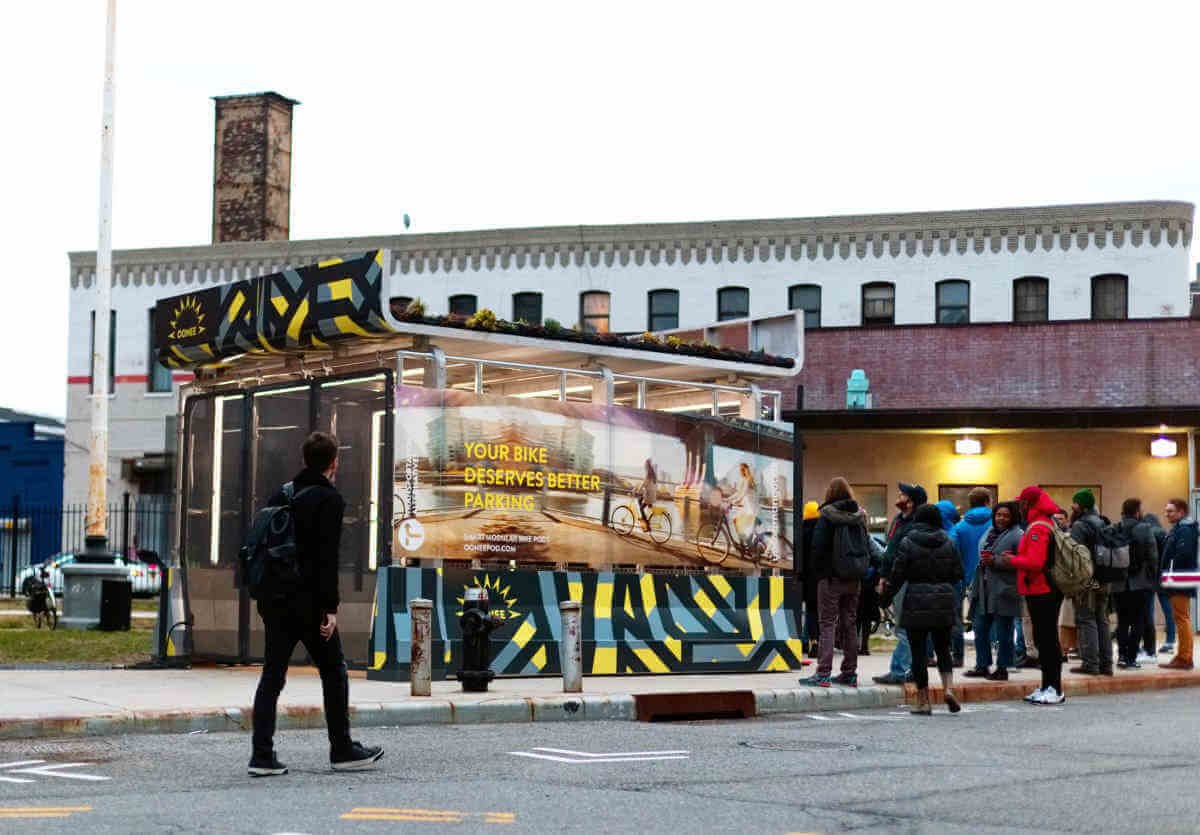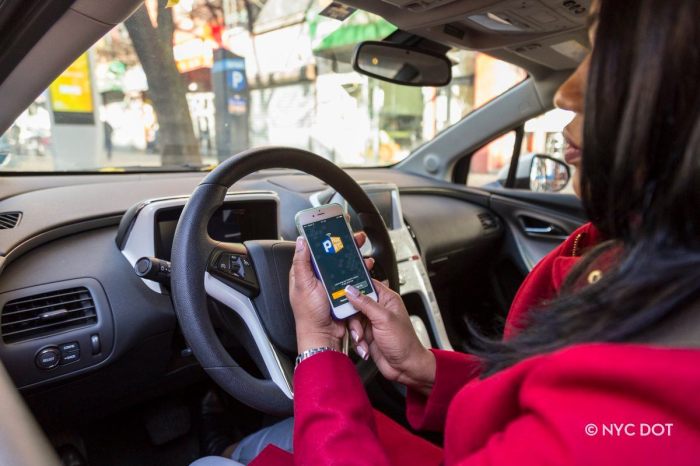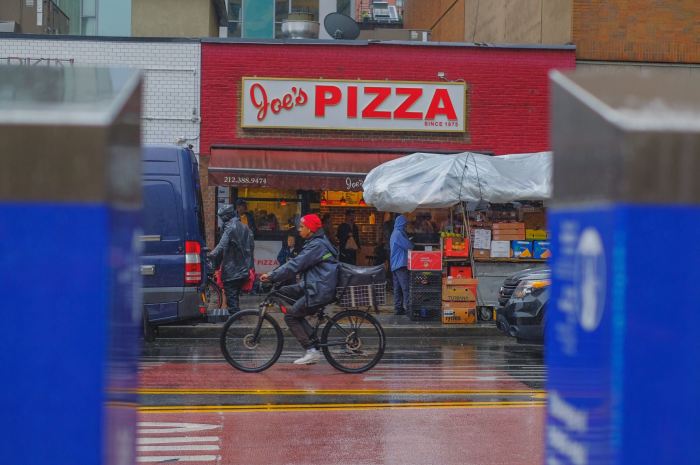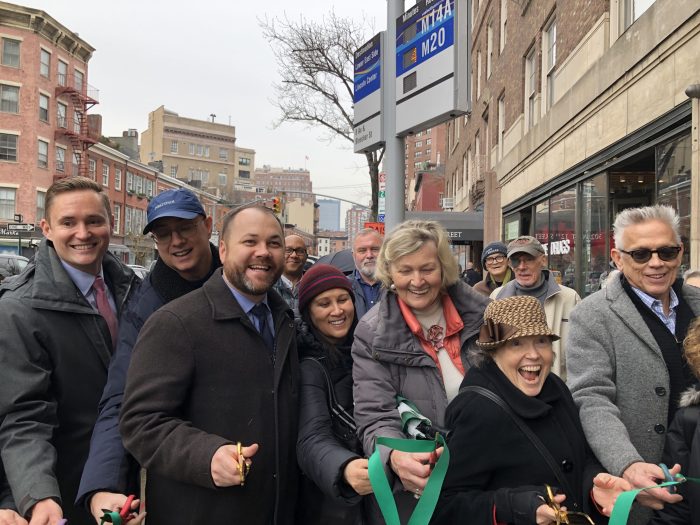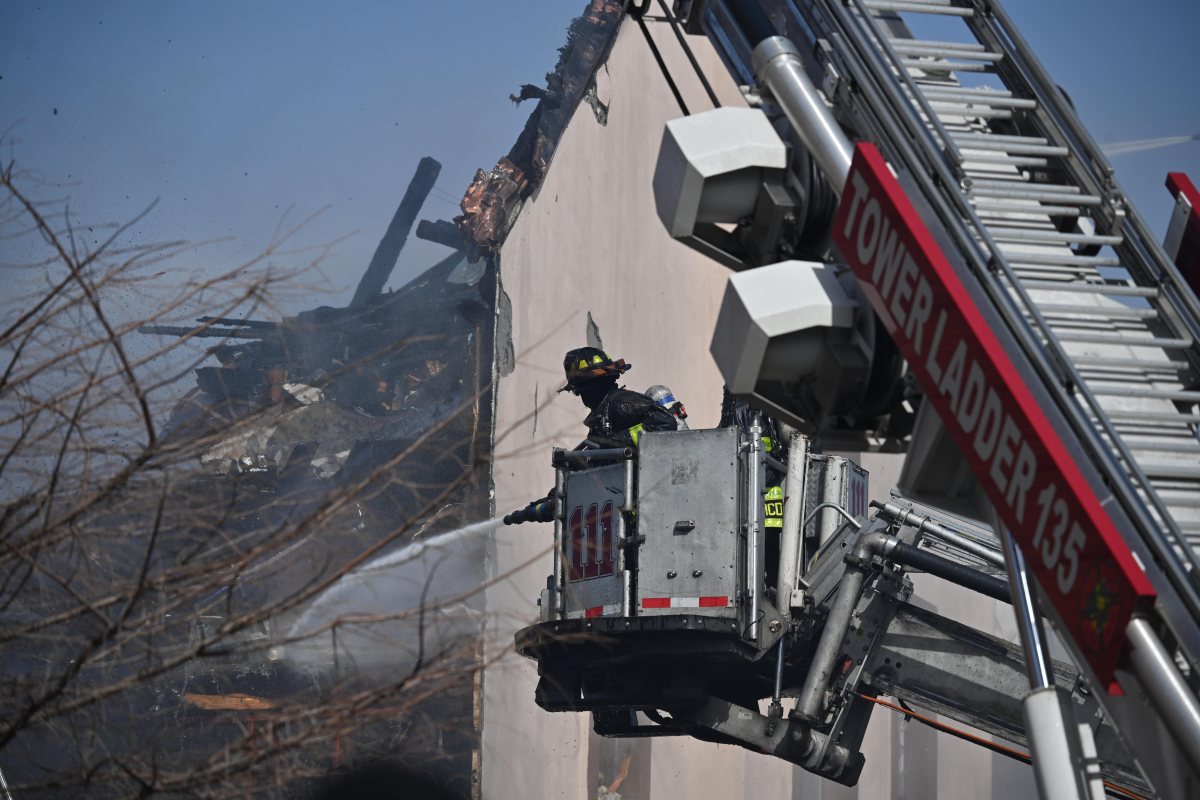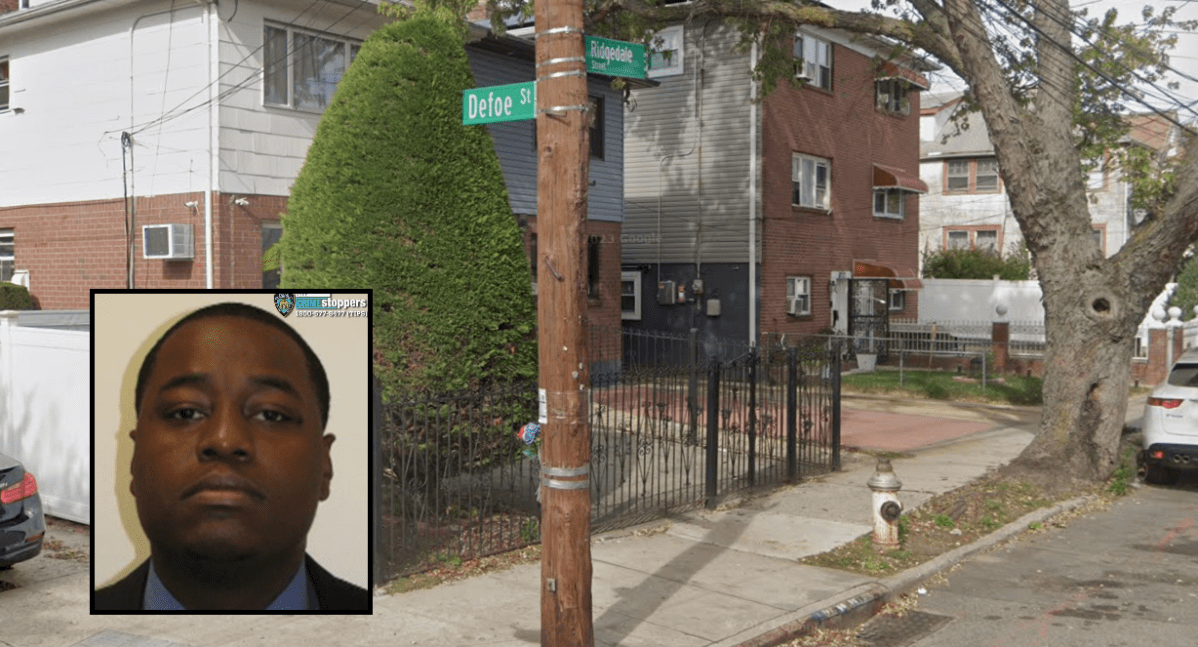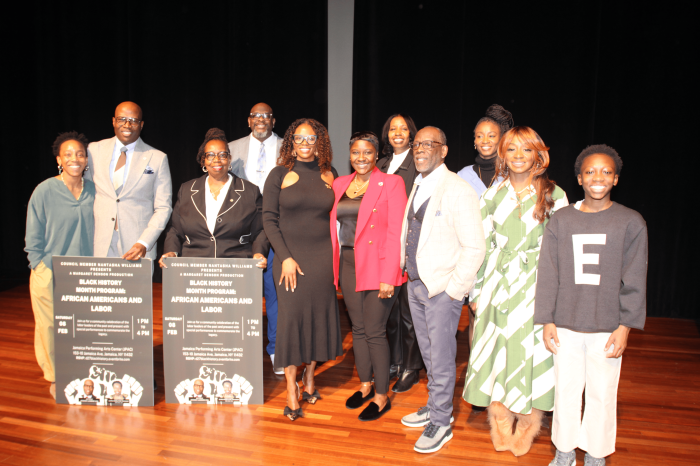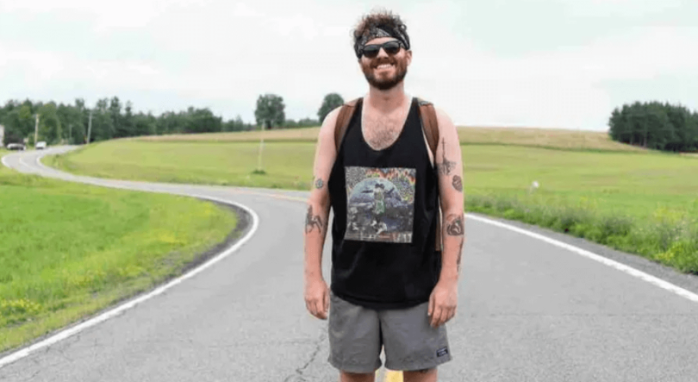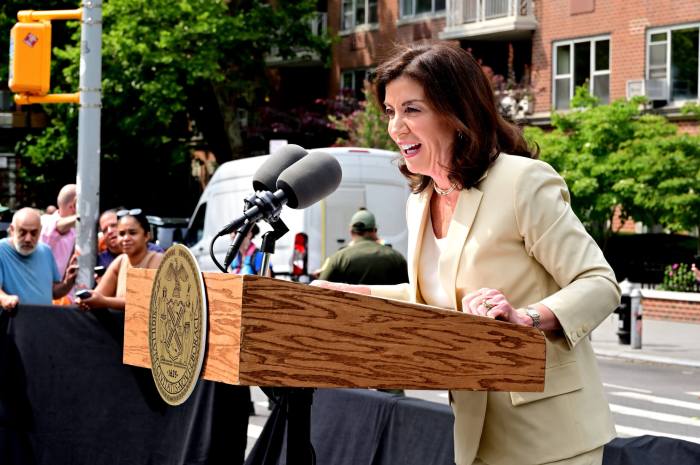Brooklyn-based bike parking pod company Oonee is growing its stable of publicly accessible and free bicycle parking rooms in New York City with an even bigger expansion in New Jersey, the company announced earlier this week.
The transportation startup unveiled its first full municipal bike parking program in Jersey City while relying on private developers and state agencies for space here, as the Big Apple bureaucracy falls behind its Garden State counterparts, according to Oonee’s founder.
“There’s no reason for New York City to continue to be a laggard,” Shabazz Stuart told amNewYork Metro. “We can’t have a conversation about climate change until we get serious about bike parking.”
Based out of a small co-working space in Flatbush, the company debuted its modular vaults outside Brooklyn’s Atlantic Terminal Mall in 2019, offering 24-7 storage for up to 20 two-wheelers at a time, funded by advertising on the outside of the structure.
Now the entrepreneurs are working with private developers in Brooklyn and Queens, along with the state’s Metropolitan Transportation Authority and the Port Authority of New York and New Jersey to set up a handful of kiosks with dozens of parking spots at their properties.
At the Williamsburg waterfront in Brooklyn developer Two Trees will set aside space for a 20-bike facility at River and N. First Street some time in 2022, near Domino Park and right next to the builder’s proposed two-tower, beach park mega-project River Ring.
Sometime next year, the company also wants to add 20 spaces to Queens Place Mall in Elmhurst.
Oonee’s so-called “Hubs” that can host upwards of 100 spaces will be integrated into developments, but accessible to the public, including at 737 Fourth Ave. in Sunset Park and 1040 Atlantic Ave. in Crown Heights in Brooklyn, and 6204 Roosevelt Ave. in Woodside, right next to the local 7 train and Long Island Rail Road stops.
A pilot program to install some “Minis” — about the size of one car parking spot and capable of storing up to 10 bikes — will hit the road at different curbside locations in the Five Boroughs, with one possible spot being the popular Vanderbilt Open Street in Prospect Heights, Brooklyn, according to Stuart.
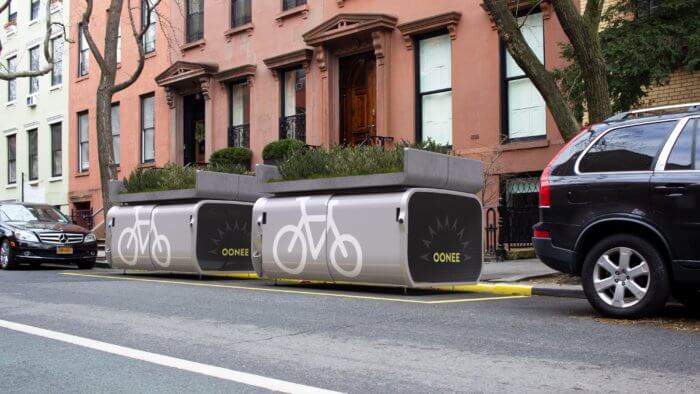
Another rollout is in the works for 14 Minis offering 100 spaces in the South Bronx, but the company is still looking for funding for that project, according to the Brooklynite.
“This is basically public transportation infrastructure and we’re a small startup,” he said.
A Mini may come to MTA’s Grand Central Terminal as soon as this fall and to two as-yet-undisclosed New York properties of the Port Authority, according to Stuart.
The biggest leap is a plan for 29 facilities in Jersey City, Oonee’s first city-wide secure bike parking initiative.
“It’s a pretty historic moment to see a city say, ‘look we’re going to think holistically and think about how we can reimagine how this infrastructure works for everybody,'” he said.
Once completed there will be 1,500 parking spots in 40 pods in both cities, according to Stuart.
New York woes
On this side of the Hudson River, city government has not been a friend of the pod, according to Stuart, who lays the blame squarely at the feet of Mayor Bill de Blasio.
“This solution was made for New York, New York is our home, the whole team is New York-based. I’ll never understand why this administration has been so slow to adopt something that works so well and that so many people love,” he said. “We could do 100 of these tomorrow. The challenge is working with government to move faster.”
In 2019, Mayor de Blasio and his Department of Transportation released the Green Wave plan to make biking safer after a record-breaking number of cyclist deaths that year, which included a call-out for a private partner to pilot secure bike parking, but Stuart said this initiative hasn’t moved forward since.
More recently, Transportation Commissioner Hank Gutman has touted his plans to add 10,000 bike racks to the city’s streets by the end of 2022, but Stuart said that’s not good enough.
“Bike racks ain’t gonna cut it. It’s good for an hour, but it’s not good overnight. You know that someone can cut that lock in a couple of minutes,” said Stuart.
Three of his bikes were stolen in the span of five years, which first motivated him to start the business.
Earlier this month, NYPD cops in Queens clipped a bunch of bikes locked to city-owned poles and boasted about it on social media. The practice exists in a legal gray area, but Gutman declined to give his blessing for cyclists to keep using the city-owned poles in the absence of officially-sanctioned bike racks.
A mayoral spokesman at the time said hizzoner will put the kibosh on cops seizing bikes like that.
DOT reiterated its ongoing bike rack effort, adding that the agency is still “exploring opportunities” with Oonee.
“Bike parking is necessary to help get more New Yorkers to embrace this healthy and sustainable form of transportation,” said spokesman Scott Gastel in a statement. “Not only have we committed to add 10,000 bike racks by the end of 2022, but we are exploring opportunities to work with Oonee to pilot their secure bike parking pod.”
Stuart is more optimistic about the next administration likely to be under Democratic mayoral nominee Eric Adams, who during his time as Brooklyn Borough President has helped the company get through the city’s red tape.
“Eric Adams and the Borough Hall team have been nothing but helpful and the earliest champions in this process,” he said.



